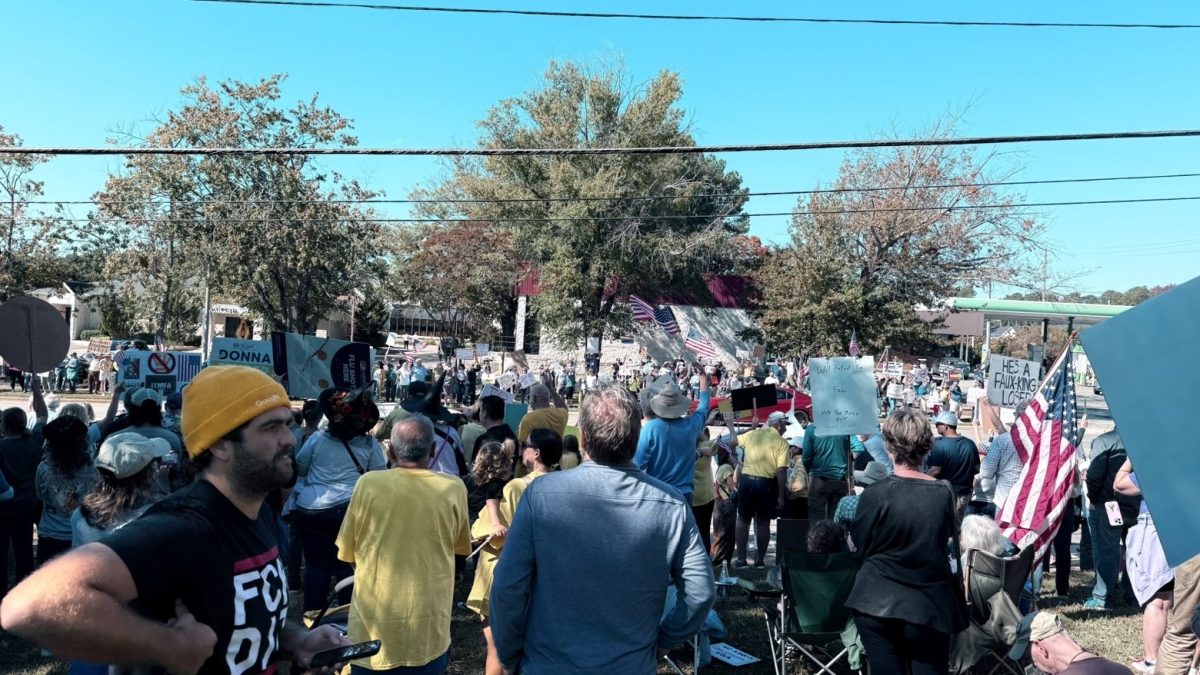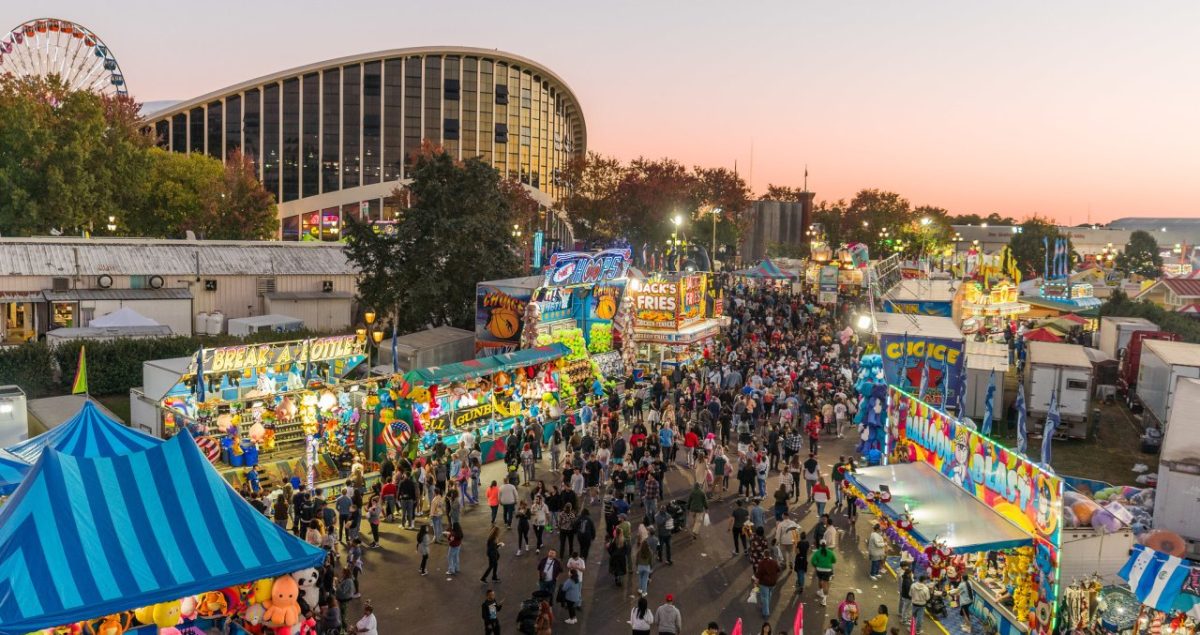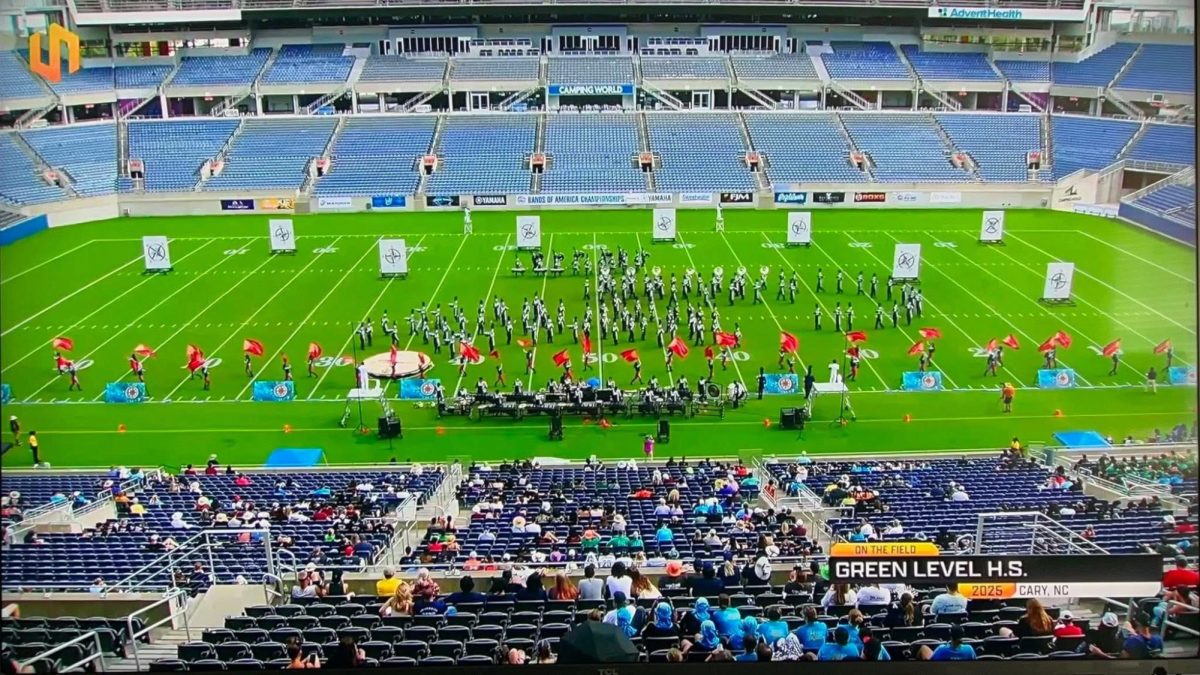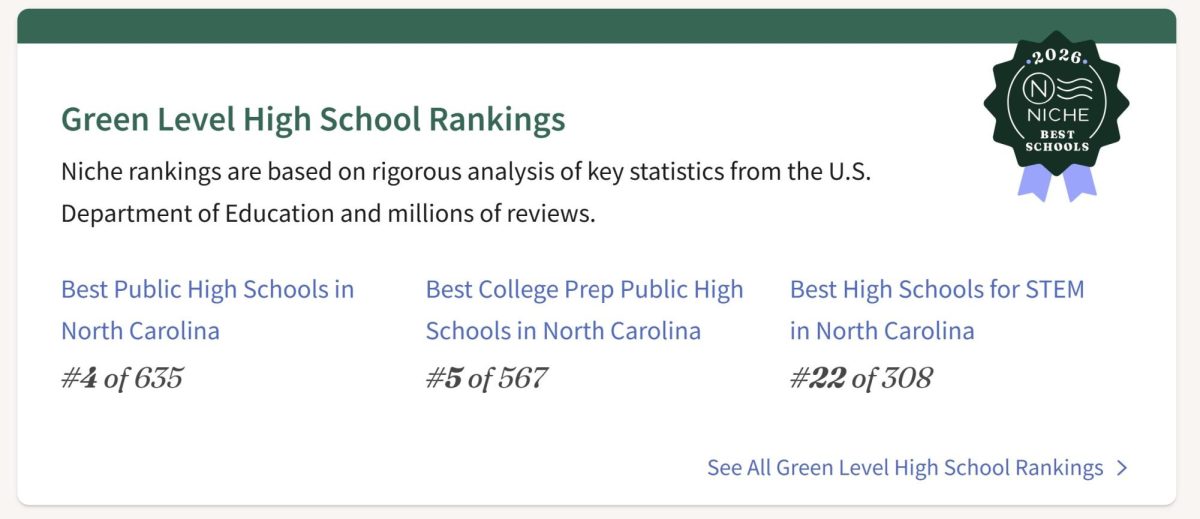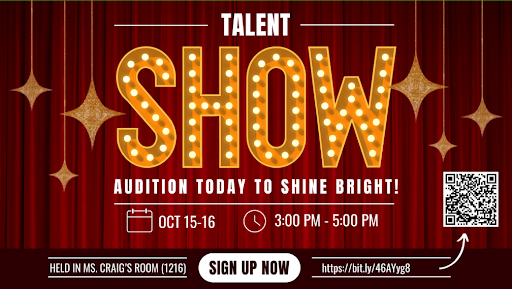Last weekend’s No Kings protests may appear to be a modern moment of political frustration, but at its core is a tradition as old as America itself. From the Boston Tea Party to civil rights marches, protest has always been a foundation of American democracy. As the US citizens navigate the changing times under the Trump Administration, a difference of opinion arises.
On Saturday, October 18th, over 7 million people at more than 2,700 events across the states took to the streets to voice their opposition to the Trump Administration. In the nonviolent movement known as No Kings, participants raised their voices to oppose policy changes they believe could undermine American democracy.
Democracy, by definition, establishes a system in which every member of the population has a role in the control of the government. All United States citizens have the right to vote and elect officials to represent them. And protected by the Bill of Rights, all citizens have the freedom of speech and assembly to give their opinions on political issues.
It appears to be a recurring pattern in United States history that protests occur when a significant portion of the population is dissatisfied with the current government or its policies. AP United States History teacher, Mr. Ralph Moore, points out this theme throughout the timeline of our country.
“Protest by regular citizens is the foundation of America. You go back to the Boston Massacre and the Boston Tea Party. Those were regular citizens protesting against what they saw as the overreach of a government that was not responding to their needs,” Moore said. “Because that’s what democracy enables average citizens to do.”
The Boston Massacre and Boston Tea Party showcase examples of monumental protests in which a brave group of individuals took action against the Townshend Acts. Eventually, the needs that these protests highlighted would become so dire that the American Revolution would soon transpire.
But protest does not always have such a dramatic delivery; sometimes it is just through assembly and organization. Moore explains how the reform movements of the 1820s through 40s had a theme of regular citizens taking up cases like abolition, women’s rights, or the care for the mentally ill.
As you shift to the Progressive Era, you still have average, mostly working-class, Americans protesting against the abuses of industry. In instances like the Homestead Strike or the Pullman Strike, you see another pattern arise. Those who created the issue being protested, in this case, its large industries, were often supported by militias and used violence to put down protests.
Then of course, you arrive at the Civil Rights Era. John Lewis, lead coordinator of the Student Nonviolent Coordinating Committee, or SNCC, coined the term “Good Trouble”. Good Trouble means taking the necessary action to challenge injustice through peaceful means, even when it’s inconvenient or risky. Moore holds this expression to high esteem, as it applies in our current political state.
Moore said, “We have to be out in the streets. We have to show who we are, our bravery, our voices, and our numbers, that this is a movement beyond just a few disappointed voices.”
It’s clear that the No Kings protests align with United States history; they have the numbers and the solidarity. But there are aspects of this event that differ from successful protests of the past. Even if protests were shut down by force, they made ripples that caused serious change like a revolution or a change in working conditions.
“Right now, these protests are really comfortable, and it’s not that they need violence, but they’re kind of easy to ignore. They get on the street corner and people honk and yell, and then everybody goes home,” Moore said. “You showed strength, but did you actually drive change? Did you actually make someone uncomfortable to where they actually have to react or change?”
Moore thinks that there is a missing piece of the puzzle in the No Kings protests.
Numbers? Check.
Solidarity? Check.
Passion? Definitely, check.
The missing piece is critical though, Moore thinks that No Kings lacks one specific and cohesive message.
“I think a successful protest has to have a focus,” Moore Said. “Demanding specific change with a unified voice rather than a very broad message of ‘No Kings’, which is just general opposition to the president. But what are the specific asks? And can you get everyone rolling in that direction?
What seems to be the problem is the misconception that a protest must have a “big tent”. Implementing this big tent allows all the many people with their many ideas and concerns to feel safe and welcome.
“But if in the tent of one hundred people, there’s one hundred different opinions, and one hundred different voices and messages, what are you actually saying?” Moore Said.
For example, you can clearly see the goal of the Boston Tea Party, it was specific and targeted. But when you look at No Kings, it is easy to disagree with their message. General opposers of a president can easily be shut down by those who are general supporters of the president. What’s needed is to get into the nitty gritty, into the specific policies or attributes of the current administration that need change. That argument will have a much better chance of success.
On the other side of the No Kings organization, the MAGA, or Make America Great Again, organization has that missing puzzle piece. They have a slogan that is clear and cohesive, one that can be repeated over and over with complete understanding.
With the potential the No Kings organization has, the obstacles of creating a successful protest are still ahead. At the end of the day, the first step is always the most important. Taking the initiative to show your strength and passion will always have a ripple effect. But immediate change is brought forth by making waves.
“Now America is facing a challenge, and until these people are willing to lie down on the street and stop traffic rather than getting people to honk, we won’t see much change.” Moore said.
As a High School teacher, Moore stresses the importance of getting involved and educated with the politics you are living in. The idea of the Bill of Rights, the rule of law, and of a functioning court system allow Americans to live in a political luxury in which they often don’t have to worry about what’s going on in the government.
Moore said, “Because of how politics was, you could always sort of count on freedom of speech, you could count on being treated fairly in a court system, you could count on these basic things. Some of those basic assumptions seem to be coming into some doubt, and that’s really troubling.”
Now more than ever, it is important for all Americans, even students in high school, to get interested and involved in the political world. Each individual is impacted by the actions of the government, now is the time to take your stance. What policies do you support? What values do you want to see in your country’s government? Do you want to be a part of the crowds taking action right now?
“I think it’s important for students in high school to begin to develop their political ideas based on history, logic, and family, and develop their own ideas and make decisions for themselves about where they stand on issues.” Moore said.
Look within yourself and do your research, it’s your future. According to US News, approximately 245 million individuals were eligible to vote in the 2024 presidential election. Only 155 million ballots were cast, meaning 89 million Americans, or 36% of the eligible voters, did not vote. It’s time to take ownership of your future, do your part in decreasing this percentage of non-voters at the next election.

